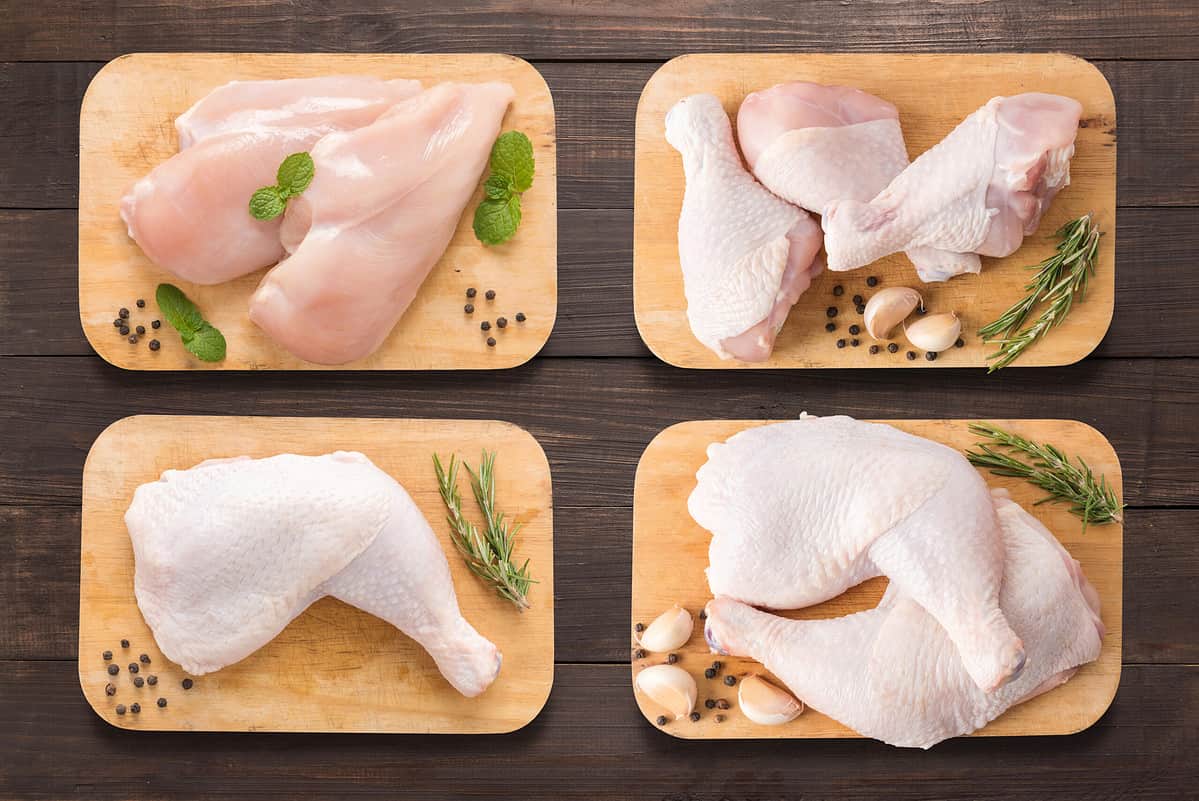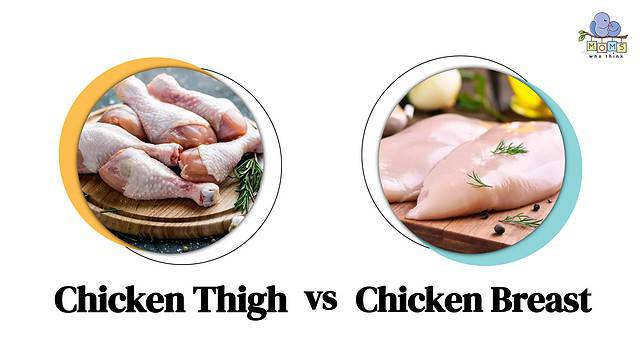
Introduction
In the realm of poultry, turkey and chicken have long been popular choices for their lean protein content. As individuals become more conscious about their health and nutritional choices, it is important to understand the differences between these two meats and determine which is the healthier choice. In this article, we will uncover the health benefits of choosing the right meat between turkey and chicken.
Overview of the topic
When it comes to comparing turkey and chicken, both types of meat offer various health advantages. They are both low in saturated fat, making them heart-healthy options. However, there are slight differences that make turkey the superior choice for certain health concerns.
Health benefits of choosing the right meat
One major factor to consider when choosing between turkey and chicken is their cholesterol content. For individuals watching their cholesterol levels, turkey is the better option as it contains slightly less cholesterol than chicken. This can be particularly beneficial for individuals with high cholesterol or those looking to maintain healthy cholesterol levels.
Both turkey and chicken are rich sources of lean protein, which is essential for muscle growth and repair. Protein is also important for maintaining a healthy weight, as it helps to keep us feeling full for longer periods. Including either turkey or chicken in your diet can support muscle development and aid in weight management.
In terms of overall nutrition, turkey and chicken offer similar amounts of vitamins and minerals. They both contain important nutrients such as iron, zinc, and B vitamins, which play a vital role in various bodily functions. Including meat in your diet can help meet your daily nutrient requirements.
When it comes to taste and versatility in cooking, both turkey and chicken offer a wide range of options. Turkey is often associated with holiday meals and can be enjoyed as roasted turkey, turkey burgers, or turkey breast. Chicken, on the other hand, can be prepared in various ways including grilled, baked, or in soups and stews. The choice between turkey and chicken ultimately comes down to personal preference and dietary needs.
In conclusion, both turkey and chicken are healthy choices when it comes to protein sources. They are low in saturated fat and provide essential nutrients. However, turkey edges out chicken in terms of cholesterol content, making it a better choice for individuals watching their cholesterol levels. Ultimately, incorporating a variety of lean proteins into your diet, including both turkey and chicken, can contribute to a well-rounded and nutritious eating plan. [1][2][3][4]

Nutrition Comparison
Turkey nutrition facts
When comparing the nutrition facts of turkey and chicken, it is important to note that both types of poultry are lean sources of protein. Turkey is typically a little higher in protein content compared to chicken. A 3-ounce serving of roasted turkey breast contains approximately 25 grams of protein, while the same serving size of roasted chicken breast contains around 23 grams of protein.
In terms of fat content, turkey is generally lower in both saturated fat and total fat compared to chicken. A 3-ounce serving of roasted turkey breast contains about 1 gram of saturated fat and 3 grams of total fat, whereas the same serving size of roasted chicken breast contains approximately 1.5 grams of saturated fat and 3.5 grams of total fat.
In regards to calories, turkey and chicken are relatively similar. A 3-ounce serving of roasted turkey breast provides around 135 calories, while the same serving size of roasted chicken breast offers about 140 calories.
Additionally, turkey is a good source of essential vitamins and minerals. It contains important nutrients such as iron, zinc, and B vitamins, which are essential for maintaining a healthy body and supporting various bodily functions.
Chicken nutrition facts
Chicken, like turkey, is also a lean source of protein. A 3-ounce serving of roasted chicken breast contains approximately 23 grams of protein, which is slightly lower compared to the protein content in turkey.
In terms of fat content, chicken has slightly higher levels of saturated fat compared to turkey. A 3-ounce serving of roasted chicken breast contains about 1.5 grams of saturated fat, which is slightly higher than the 1 gram found in turkey. The total fat content is also slightly higher in chicken, with a 3-ounce serving providing around 3.5 grams of total fat.
When it comes to calories, chicken is similar to turkey. A 3-ounce serving of roasted chicken breast contains around 140 calories, which is comparable to the calorie content of turkey.
Chicken is also a good source of vitamins and minerals, including important nutrients like iron, zinc, and B vitamins.
Overall, both turkey and chicken are healthy choices for incorporating lean protein into your diet. While turkey may have a slightly higher protein content and lower fat content compared to chicken, the differences are relatively minor. The choice between turkey and chicken ultimately comes down to personal preference and dietary needs. Incorporating both of these poultry options into your meal plans allows for variety and ensures a well-balanced and nutritious diet. [5][6][7][8]

Protein Content
Turkey: A rich source of protein
When it comes to protein content, turkey is a standout choice. A 100-gram portion of turkey contains about 29 grams of protein, which is slightly more than the 27 grams found in the same portion size of chicken. Protein is an essential macronutrient that is crucial for muscle growth, repair, and maintenance. Including turkey in your diet can help meet your protein needs and support your overall health and fitness goals.
Chicken: High protein content
While turkey may have a slight edge in terms of protein content, chicken is still a high-quality source of this macronutrient. A 100-gram serving of chicken provides approximately 27 grams of protein, making it an excellent choice for those looking to increase their protein intake. Whether you are an athlete, fitness enthusiast, or simply aiming to lead a healthy lifestyle, chicken can be a valuable addition to your diet.
Protein plays a crucial role in many bodily functions, including the growth, repair, and maintenance of tissues. It also helps regulate hormone production, supports immune function, and provides an energy source. Including an adequate amount of protein in your diet is essential for overall health and well-being.
Both turkey and chicken provide high-quality protein that is easily digestible and contains all the essential amino acids necessary for optimal health. They are lean meats that offer a range of benefits beyond protein content. Turkey and chicken are low in calories and fat, making them suitable options for those looking to manage their weight or adhere to a balanced diet.
In addition to protein, turkey, and chicken offer an array of vitamins and minerals. Both poultry options are excellent sources of important nutrients like iron, zinc, and B vitamins. These nutrients play crucial roles in supporting various bodily functions, including immune function, energy production, and the formation and maintenance of healthy red blood cells.
When comparing turkey and chicken, it is important to note that the differences in protein content are relatively minor. Both options provide a substantial amount of protein and offer a range of health benefits. The choice between turkey and chicken ultimately comes down to personal preference, taste, and dietary needs.
Incorporating both poultry options into your diet allows for variety and ensures a well-rounded and nutritious meal plan. Whether you're enjoying a turkey sandwich, a grilled chicken salad, or a comforting roast, you can rest assured knowing that you are fueling your body with quality protein and nourishing nutrients. [9][10][11][12]
